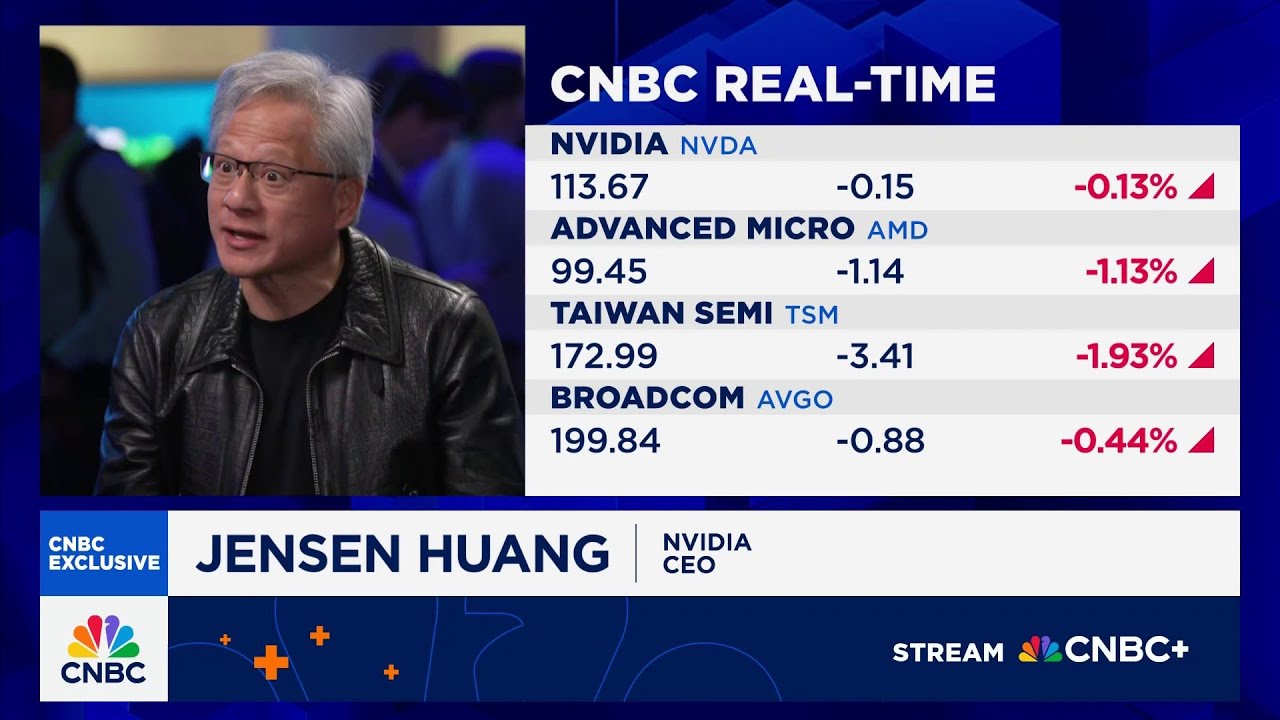Nvidia CEO Jensen Huang emphasizes the transformative potential of AI, highlighting the company’s focus on developing integrated hardware and software platforms to advance enterprise AI and address global markets, including China. Despite geopolitical challenges and restrictions on chip sales to China, he underscores the importance of the Chinese AI market for Nvidia’s growth and the broader AI revolution, projecting significant future opportunities in enterprise AI.
In the video, Nvidia CEO Jensen Huang discusses the company’s strategic focus on AI and its importance to the future of computing. He emphasizes that AI has transformed the entire computing stack, enabling software agents capable of understanding and reasoning across various data types, including unstructured and structured data. Huang highlights that this new software ecosystem is built on powerful GPUs, which are essential for developing advanced AI applications. He underscores Nvidia’s commitment to creating platforms that support this AI revolution, with a particular emphasis on software and hardware integration.
Huang mentions the strong partnership with ServiceNow, which has been ongoing for over six years. He describes ServiceNow as a “control tower” for enterprise transformation, integrating data from multiple sources and enabling AI-driven workflows across organizations. The collaboration has led to the development of new AI models, such as the recently announced reasoning model called April Memotron, which is integrated into the ServiceNow platform. This partnership exemplifies Nvidia’s vision of building an enterprise AI operating system that leverages AI to improve productivity and automate complex tasks.
The conversation also touches on the rapid evolution of AI technology and the importance of software platforms in realizing AI’s full potential. Huang explains that the AI software stack is highly complex but essential for enabling new kinds of software that can understand, reason, and solve problems. He reiterates that Nvidia’s goal is to help the world build innovative software on top of GPUs, creating a new computing paradigm that supports intelligent agents capable of handling diverse data and tasks.
A significant part of the discussion addresses the geopolitical and economic challenges Nvidia faces, particularly regarding restrictions on selling chips to China. Huang acknowledges a $5.5 billion write-off due to these restrictions but emphasizes the enormous potential of the Chinese AI market, which could reach $50 billion in a few years. He stresses the importance of staying agile and adaptable to changing policies, asserting that addressing the Chinese market is crucial for Nvidia’s growth, revenue, and contribution to the US economy through taxes and job creation.
Finally, Huang underscores the vast opportunity in enterprise AI, projecting a $1 trillion market that could revolutionize how companies operate and produce products. He highlights Nvidia’s ambitious goal of generating a billion dollars in enterprise AI revenue next year, reflecting the company’s confidence in AI’s transformative power. Overall, the video portrays Nvidia’s vision of AI as a fundamental driver of future technological and economic progress, with strategic partnerships and adaptability being key to navigating the evolving landscape.
